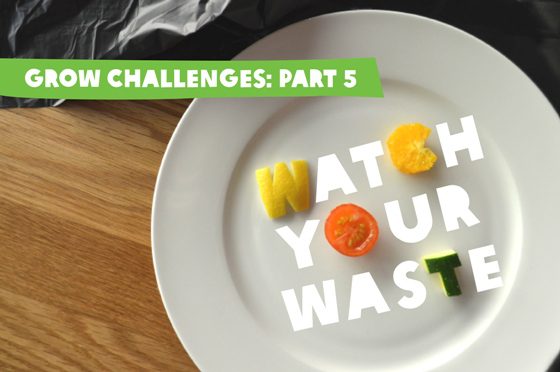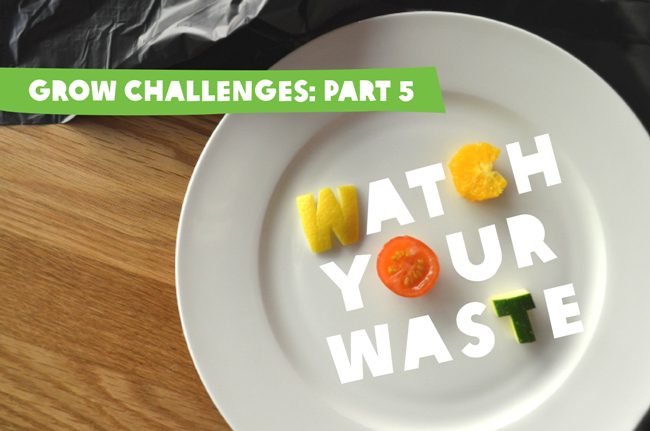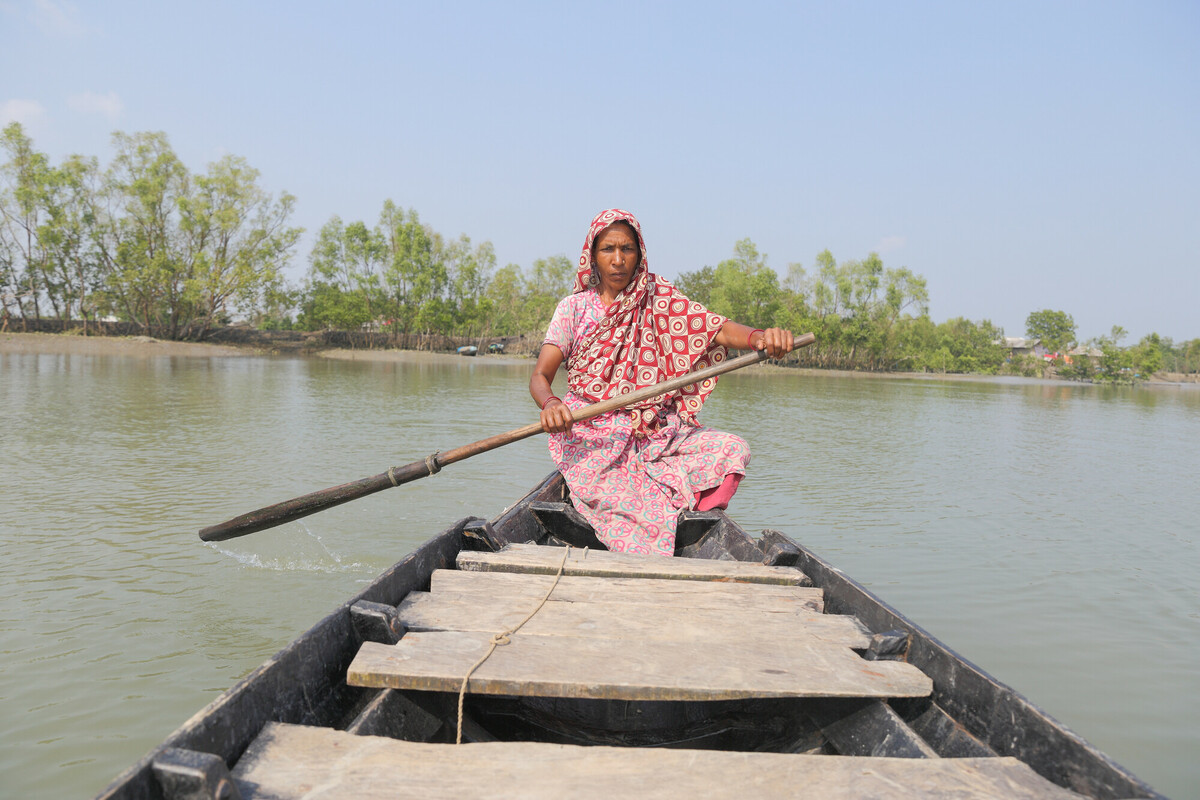By Tori Sanderson, Oxfam GROW Team Intern
There are 870 million hungry people in the world, but at least one third of the food that the world produces is wasted. Why is this? Where does all this food go? And what can we do to stop it?
This month your GROW Challenge is for you to commit to just one action to reduce food waste. A great way to start is to jump onto our GROW Food Waste page and check out the ideas that we have to easily and effectively cut down on the amount of food we inadvertently chuck out.
Take the pledge, and you could win a signed copy of seasonal cooking guru, Janella Purcell’s new cookbook, Wholefood Kitchen.
What’s the impact of food waste?
When we let that last pear go bad or throw out those broccoli stalks, they rot in landfill and release harmful greenhouse gases that negatively impact the environment. And food that is wasted in production and delivery (because of oversupply or strict cosmetic standards) costs precious resources with no benefit.
In the developing world, poor food storage results in post-harvest losses of up to 25% of the total crop harvests.
All this waste means that every year, consumers in rich countries waste almost as much food (222 million tonnes) as the entire net food production of sub-Saharan Africa (230 million tonnes). This means that the rates at which we are requiring food to be produced are unrealistically and unnecessarily high.
So what can be done?
Fortunately, the steps that we can take to reduce our personal food waste are quite manageable. This month, our bloggers have looked into many different ways you can reduce and reuse your food waste!
- Julie Goodwin has a plethora of great ideas to reduce food waste that she puts into daily practice. Find out what they are here.
- Kerrin speaks to Elaine Montegriffo, CEO of Second Bite about her experience both in international development work, and how she and Second Bite have rescued more than seven million tonnes of perfectly edible food in Australia.
- Actions like composting help reduce the amount of food waste in landfill, and it’s even possible in urban settings. Check out Victoria’s how-to guide to urban composting here, and Steph discovers an unexpected compostable item that reduces her food waste here.
- Margaret has tracked down some delicious recipes to help you use up the three most wasted foods.
- If you’re looking for something a bit ‘different’ to do with your banana peels, check out these weird and wonderful ways people have reduced food waste throughout history.
- You might also be intrigued to know that even if you do throw some food out, or if your local supermarket does, a special breed of people known as ‘freegans’ may come and snatch it out of the garbage anyway! Tara looks into the trend of dumpster diving and ‘waste cooking,’ and might just make you rethink your definition of ‘bad’ food.
- So if it’s so easy for individuals to reduce food waste, what can restaurants and cafes do? In her blog post, Julie rides along with the OzHarvest van for the day, picking up leftover food and delivering it to people in need.
- But what about the developing world? Tara covers some great initiatives to reduce food waste in Timor-Leste.
- The NSW Love Food Hate Waste program is brimming with practical tools and information to make reducing food waste that much easier and more targeted.
This month’s GROW Challenge is generously supported by the NSW Love Food Hate Waste program.
Take the GROW Challenge
Each month from April to September, we will profile a different principle from the GROW Method with information, inspiration, recipes, and delicious competitions. Be part of a growing movement of people who want to use their everyday buying and cooking power to create sustained change in the world.
About the author…
With first class honours in Chinese Studies and currently studying a Masters of Development Studies, Tori is passionate about international development, sustainable food and China. She loves to run, drink coffee, and read dystopic fiction. Check out her blog www.toristreet.com or catch her on twitter:@toristreet.






